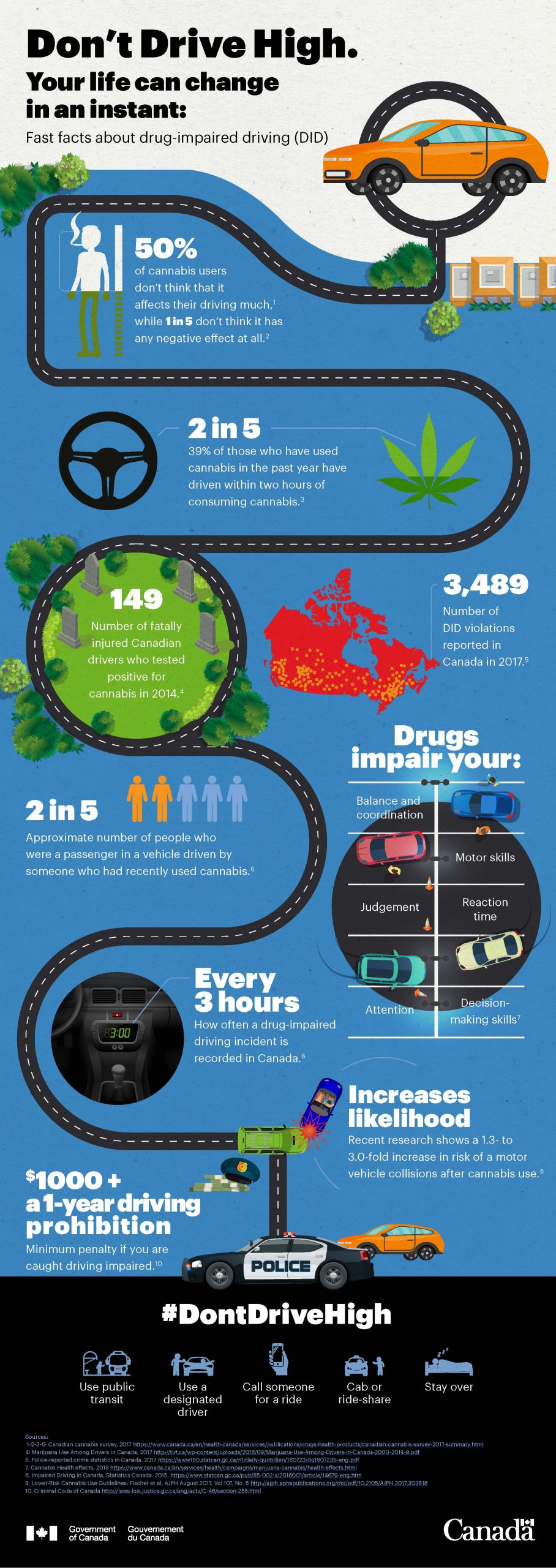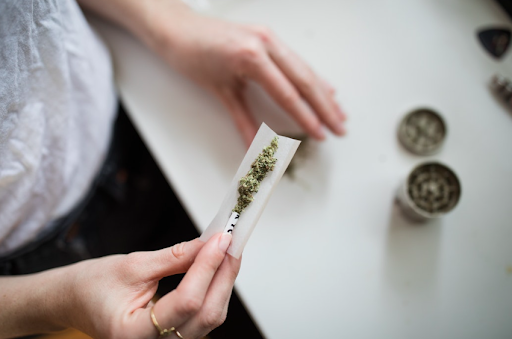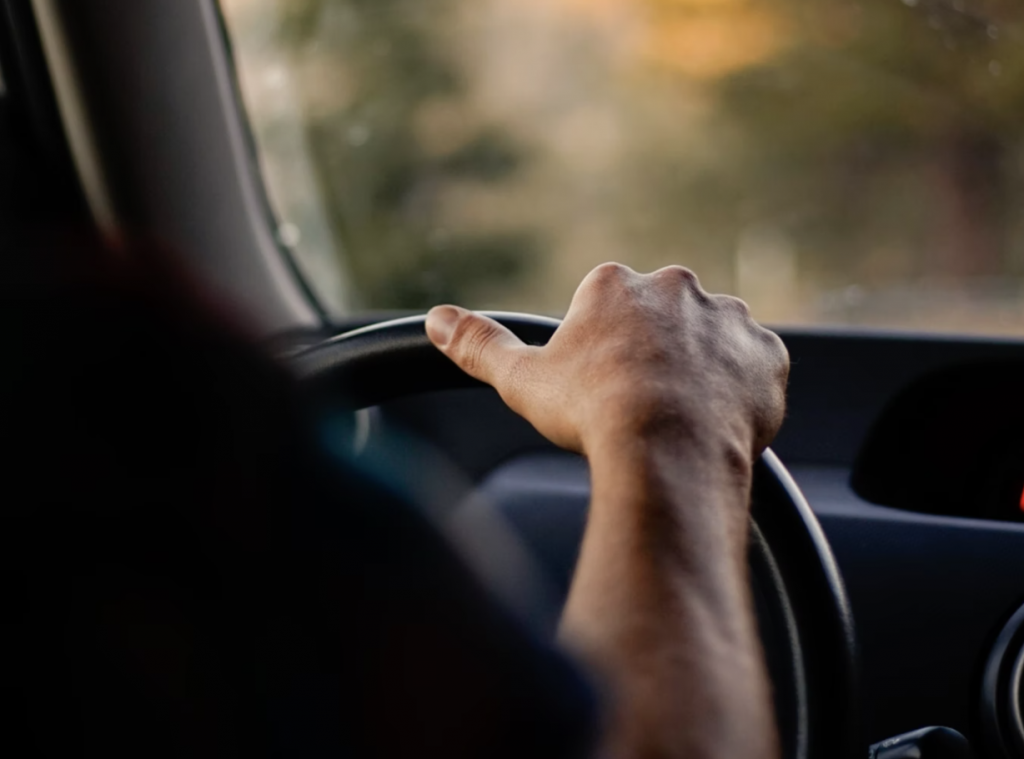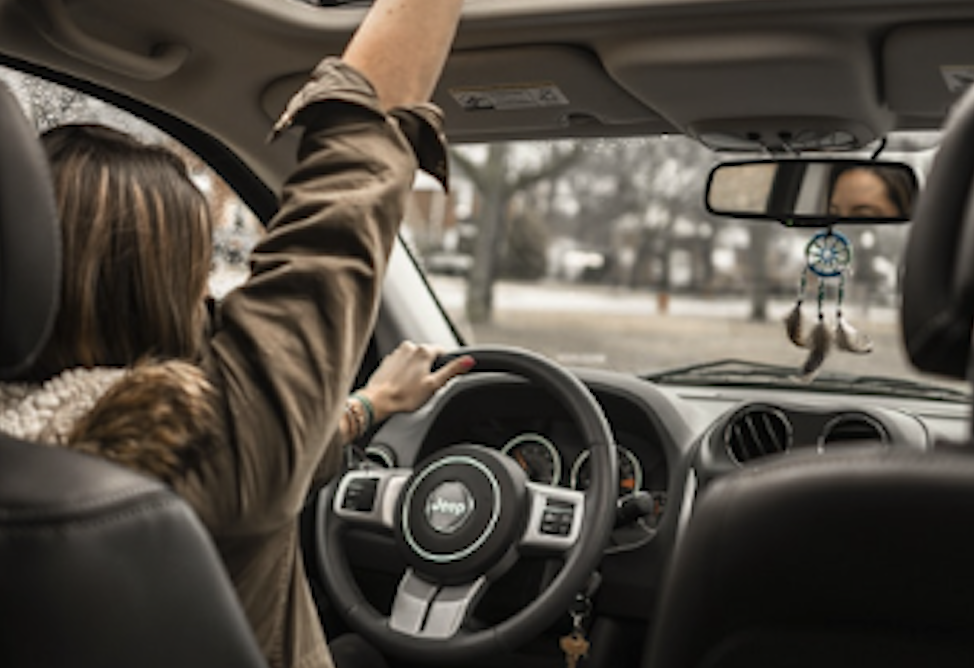According to Mothers Against Drunk Driving Canada, an average of four people are killed each day in crashes involving alcohol and/or drugs.
When we are driving, we often forget that we’re operating a 3,000-pound missile – and it only takes one second to lose your focus and concentration at the wheel to make a life-altering mistake.
So with the legalization of cannabis set to take force in Canada on October 17th, there have already been major strides in how law enforcement will handle this.
How police are preparing to catch drivers under the influence of cannabis
Public Safety Canada announced in September 2017 that it would invest up to $81 million in new law enforcement training to help officers weed out impaired drivers through a 12-step evaluation known as a drug recognition expert evaluation. Right now, the threshold will be if police suspect you are under the influence, they will administer the standard field sobriety test and if you fail they can demand a drug recognition evaluation.
Here’s what to expect if you are pulled over on suspicion of impaired driving:
- After first using a breath test to rule out alcohol as the main cause of impairment,
- The officer will interview the driver and complete a pulse check.
- The driver will then be asked to complete three tests: an eye test, the one-leg stand, and the walk and turn.
There’s no set limit on the amount of cannabis that you can have in your blood, the same way there currently is for alcohol.
When will roadside saliva tests come into effect?
Driving while intoxicated will remain illegal after legalization, and Canada’s laws regarding driving under the influence will see some additional changes to once it’s been implemented; the same goes for over-the-counter medications that might also impair your ability to drive.
Bill C-46 is an overhaul to drug-impaired testing, which proposes changes to impaired-driving laws, by outlining specific limits for the amount of THC, the main psychoactive ingredient in cannabis, that you can legally have in your blood while driving – which will come in the form of roadside saliva-testing devices. A model still has to be approved, but these sweeping changes have taken a huge step forward this June.
Alcohol affects your judgment, reaction time and perception – and cannabis can do the same, while impairing each person differently. The impairment on individuals can depend on:
- The method of consumption, for example how cannabis was consumed (smoked, inhaled, ingested);
- The quantity of cannabis consumed;
- The variety of cannabis and its THC levels, including cannabis prescribed for medical use.
Don’t take a chance. Don’t drive high.
Cannabis has been shown to impair driving performance for up to three hours after use. Here is a helpful infographic put together by the Government of Canada.

Although everyone has heard the message to avoid driving awhile intoxicated – not everyone listens to that message. If you have been injured by an intoxicated driver, the lawyers at Harris Law can get you the compensation to which you are entitled.














